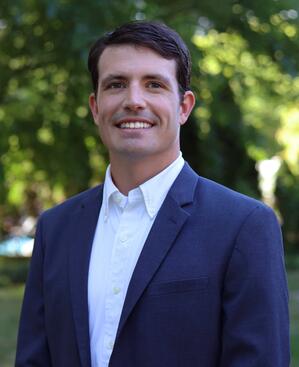Of its many members, the Soil Science Society of America chooses one graduate student each year to receive The Truog Soil Science Outstanding Dissertation Award. This year, the winner was Matthew Amato, a UCR postdoctoral researcher.
Per the society’s website, the award is designed to recognize a recent Ph.D. degree recipient who has made an outstanding contribution to soil science, as evidenced by their dissertation.
Amato works with Hoori Ajami, UCR associate professor of groundwater hydrology, and studies how biological organisms, like plants, affect the water cycle. His primary focus is below-ground processes, such as the ways in which plant roots’ uptake of water influences soil moisture.
His winning dissertation describes a dynamic computer model he built to predict plant contributions to carbon deposits into soil, which is one of the main solutions for taking carbon out of the atmosphere and storing it safely where it will not contribute to global warming.
The model also offers insights into how much water and nutrients the plants extract from soil. It helps quantify exchanges of water and carbon from plants into the atmosphere, and also allows researchers to understand how plants get water during droughts.
Because there is limited data about how plant roots are distributed, it’s hard for researchers to make large-scale inferences about how roots are controlling processes related to soil moisture and carbon sequestration. Amato’s model helps researchers move beyond these limitations.
“I’m hoping with the attention paid to my work through this award, people will be more mindful that there’s an entire network of roots that are alive and active beneath our feet,” Amato said.
“It’s invisible to us, but this network plays a major role in all the ecosystem processes and services that humanity benefits from, like crop growth, climate regulation, and carbon sequestration.”
The work on this model was done while Amato was a Ph.D. student at Rutgers University.
Along with the award, Amato will receive $2,000 and be honored at a November award ceremony in San Antonio, Texas.
Founded in 1936, the 6,000-member Soil Science Society of America is based in Madison, Wisconsin and exists to advance the field of soil science. To that end, it provides information about soils in relation to crop production, environmental quality, forestry, ecosystem sustainability, bioremediation, waste management, urban uses, mining, and reclamation, and across many closely related scientific disciplines and applied fields.
